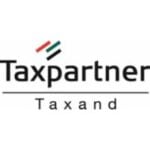-
Is it necessary for a taxpayer to register with the tax authority? Are separate registrations required for corporate income tax and value added tax/sales tax?
Corporate income tax (“CIT”)
A company that is resident in Malaysia that exercises its management and control is required to register with the Malaysia Inland Revenue Board (“MIRB”) to make payments to taxes within seven months of closing the accounts. Upon registering with the MIRB online, the company is required to submit the following supporting documents:
- Notice of registration of company under Section 15 of the Companies Act 2016 (“CA”); OR
- Certificate of incorporation of company under Section17 of the CA (if available); AND
- Superform (for application under Section 14 of the CA); OR
- Notification of Change in the Register of Directors, Managers and Secretaries under Section 58 of the CA (if applicable).
Subsequent to that, the company will be given an income tax reference number and an employer income tax reference number for the electronic filing of its corporate income tax returns. Effective from 1.1.2022, all registered companies will be assigned a tax identification number (“TIN“). The company is required to submit Form e-CP204 within 3 months from the date of commencement of the business.
The tax registrations for sales tax and services tax are under different regimes.
Sales tax
Sales tax is imposed on registered manufacturers of taxable goods and on the importation of taxable goods into Malaysia. Generally, goods are liable to sales tax at a rate of 10%.
Mandatory registration
Under the Sales Tax Act 2018, the following entities are liable to pay sales tax and register with the Royal Malaysian Customs Department:
- Taxable goods manufacturer where the sales value of taxable goods has exceeded RM500,000 for a 12 months period;
- Manufacturers who carry out sub-contract work on taxable goods where the value of work performed exceeds RM500,000 for a 12 months period. In this case, taxable goods refer to those taxable goods belonging to a registered manufacturer, non-registered manufacturer and manufacturer in the special area (Free Industrial Zone and Licensed Manufacturing Warehouse).
The sales value of taxable goods for a period of 12 months is calculated using the following methods:
- Historical Method: The total value of taxable goods in that month and the 11 months immediately preceding the month;
- Future Method: The total value of taxable goods in that month and the 11 months immediately succeeding the month.
A manufacturer must register as a registered manufacturer not later than the last day of the month following the month he is liable to be registered.
Voluntary registration
Voluntary registration is available for manufacturers of taxable goods with sales value below the threshold of RM500,000 for a 12-month period or for persons who are exempted from registration, except for manufacturers of non-taxable goods.
Service tax
Mandatory registration
Under the Services Tax Act 2018, any taxable person providing taxable services exceeding the threshold is required to be registered. Generally, the threshold is RM 500,000 for most categories, other than for the specific categories (Credit card/charge card and forwarding agents with no threshold; Food and beverages at RM 1,500,000;).
The rate of service tax is 6% ad valorem for all taxable services and digital services except for the provision of charge or credit card services. Service tax for the provision of charge or credit card services is RM25 per year on each principal card or supplementary card.
Voluntary registration
Voluntary registration is available for any person who provides taxable service less than the threshold.
Service tax on digital services
Any foreign service provider who provides digital services to individuals or businesses in Malaysia is liable to be registered where the total value of digital services provided exceeds RM500,000 per year.
-
In general terms, when a taxpayer files a tax return, does the tax authority check it and issue a tax assessment – or is there a system of self-assessment where the taxpayer makes their own assessment which stands unless checked?
In the year 2001, Malaysia adopted the self-assessment system where the taxpayer is responsible for determining and computing respective tax liabilities in accordance with the existing tax legislation, policies and guidelines. Under the law, every company is required to submit its tax return to the MIRB within 7 months from the date following the close of the accounting period which constitutes the basis period for the year of assessment. The tax return submitted from the year of assessment 2001 onwards is deemed to be a notice of assessment.
Under the self-assessment system, MIRB is empowered to request further documents in conducting tax audits or tax investigations. A tax audit is an inspection of the taxpayer’s financial records to ensure compliance with taxation laws. Tax investigation involves an investigation of the taxpayers who are suspected to be involved in fraud, wilful defraud or negligence in reporting their income. There are no time limits for the MIRB to commence tax audits.
-
Can a taxpayer amend the taxpayer’s return after it has been filed? Are there any time limits to do this?
Under the self-assessment system, the taxpayers are allowed to make an amendment to the tax return on the amount of tax payable and amount of chargeable income. The amendment must be made in a specified form no later than 6 months from the due date for submission of a tax return. Such an amendment can only be allowed once for each year of assessment. However, no amendment should be made in the event the MIRB has issued an assessment or additional assessment on a tax return that was filed by the due date.
Alternatively, the taxpayer has an option to make an application for relief under Section 131(1) of the ITA to claim relief for excessive tax paid due to error or mistake. However, the crucial conditions related to the application for relief under Section 131(1) of the ITA are stated in Section 131(4) of the ITA:
- The application for relief will not be considered if the income tax return form (“ITRF”) is made in accordance with the known stand, rules and practices of the Director General of Inland Revenue (“DGIR“) prevailing at the time when the assessment is made;
- The taxpayer must pay all taxes where assessments have been made for the relevant YA; and
- The taxpayer must make a written application by way of a letter or Form CP15C to the DGIR within five (5) years after the end of the YA in which the assessment is deemed.
Moreover, the Taxpayer may also file an application for relief under Section 131A of the ITA for relief in certain circumstances not falling under error or mistake:
- any exemption, relief, remission, allowance or deduction granted under the ITA or any written law gazetted after the YA in which the ITRF is furnished;
- approval for any exemption, relief, remission, allowance or deduction is granted after the YA in which the ITRF is furnished; or
- a deduction not allowed in respect of payment not due to be paid under Section107A(2) or 109(2), Section 109A, or Section 109B(2) or 109F(2) of the ITA on the day the ITRF is furnished.
The conditions for the relief application are:
- The taxpayer must furnish ITRF in accordance with subsection 77(1) or 77A(1) of the ITA;
- The taxpayer shall pay all taxes that have been made for the relevant YA.
The application for relief under Section 131(1) and Section 131A can be either made by a letter or through Form CP15C by stating the grounds of the application within 5 years after the end of the year assessment which the assessment was deemed to be made or assessment was raised. If the application for relief is approved by the MIRB, the assessment will be amended by issuing a reduced assessment. If the application for relief is rejected by the IRBM, a rejection letter together with the grounds of rejection will be issued to the taxpayer.
If the taxpayer does not agree with the decision to reject the application, he may request via a letter to the DGIR to send the application for relief which was submitted earlier to the SCIT within six months from the date of the rejection. The DGIR shall forward the application to the SCIT within three (3) months from the date of receipt of the request.
-
Please summarise the main methods for a tax authority to challenge the amount of tax a taxpayer has paid by way of an initial assessment/self-assessment.
Consequent to an audit conducted, the officer from MIRB will notify the taxpayers of the tax adjustments with various types of assessment as stated below:
- Notice of Assessment;
- Notice of Additional Assessment;
- Notice of Reduced Assessment;
- Composite Assessment; and
- Notification of Non-Chargeability (“NONC”)
Notice of Assessment
The notice of assessment must be made in the prescribed form which contains the following information:
- The amount or additional amount of chargeable income and the tax payable on the chargeable income;
- The place at which the payment is to be made;
- The increase in late payment imposed; and
- Any right of appeal provided under the law.
After the assessment is raised, the tax authority must serve the notice of assessment on the person being assessed.
Notice of Additional Assessment
The notice of additional assessment may be made in the following situations:
- Where there is additional chargeable income, and the original assessment has not taken account of this income; and
- Where the MIRB discovers that the whole/ part of any tax repaid to a person has been repaid by an error of fact/law.
No additional assessment can be raised in the following circumstances:
- if the overpayment results from the application of practice generally prevailing at the time the repayment was made; and
- More than six years (5 years from 1.1.2014) after the tax has been repaid.
Notice of Reduced Assessment
A reduced assessment is typically issued when the taxable income is assessed to be lower than the original assessment. However, an appeal may be made in respect of the notice of reduced assessment if there are issues in the notice that are disputed by the taxpayer.
NONC
When determining the chargeable income of a person and it appears to the MIRB that no assessment shall be made in respect of the person for any year of assessment due to an absence of income or an exemption granted, the taxpayer may exercise its discretion to raise NONC that no assessment will be made for the particular year of assessment and provide a computation.
Composite Assessment
A composite assessment raised by the tax authority is final and conclusive and no appeal could be made against it. This is because a composite assessment is made pursuant to an agreement entered between the taxpayer and the tax authority on the amount of tax and penalty in consequence of any default in the taxpayer’s self-assessment.
-
What are the time limits that apply to such challenges (disregarding any override of these limits to comply with obligations to relief from double taxation under a tax treaty)?
Under the law, the tax authority is not allowed to raise any form of challenges against the taxpayer after the 5-year statutory limit has passed unless the tax authority is able to prove that there is fraud, wilful default or negligence. The statutory limit for the tax authority to raise any form of assessment in the context of transfer pricing is 7 years.
-
How is tax fraud defined in your law?
There is no express definition of “tax fraud” stipulated under the ITA. In Malaysia, tax fraud is more commonly known as tax evasion under Section 114 of the ITA. Tax evasion involves a person not paying his or her taxes by taking illegal measures such as wilful understatement of omission of a taxable object and is an offence under the ITA which includes the following:
- omits any income from a tax return;
- makes a false statement or entry in a tax return;
- gives a false answer, either orally or in writing, to a question asked or request for information made by the tax authority;
- prepares, maintains or authorises the preparation or maintenance of false books of account or other false records;
- falsifies or authorises the falsification of books of account or other records; or
- make use or authorises the use of any fraud, art or contrivance.
-
How is tax fraud treated? Does the tax authority conduct a criminal investigation with a view to seeking a prosecution and custodial sentence?
Tax evasion is an offence that will attract criminal liability. Section 114(1A) of the ITA makes it an offence to assist or advise a taxpayer to understate their tax liabilities unless such assistance and advice are given with reasonable care. If found guilty, the person is liable to a fine of not less than RM 2,000 and not more than RM 20,000 or to imprisonment not exceeding 3 years or both.
-
In practice, how often is a taxpayer audited after a return is filed? Does a tax authority need to have any justification to commence an audit?
An audit is a routine activity of the MIRB under the self-assessment system. A taxpayer can be selected for an audit at any time. Cases selected for audits are mainly determined through risk assessment, information from third parties, specific industries targeted by the IRB and specific issues related to taxpayers. No justification is needed to commence an audit.
-
Does the tax authority have to abide by any standards or a code of conduct when carrying out audits? Does the tax authority publish any details of how it in practice conducts audits?
The MIRB must comply with the provisions of the ITA in conducting audits. The provisions of the ITA which are applicable to audits include the power to call for specific returns and production of books, the power to call for statements of bank accounts, the power of access to buildings and documents and the power to call for information.
Apart from statutory provisions relating to audits, an audit officer must adhere to the rules and codes of ethics drawn up by the IRB. The IRB has issued a Tax Audit Framework various tax audit frameworks (https://www.hasil.gov.my/en/legislation/tax-audit/) to ensure that audits are carried out in a fair, transparent and impartial manner. This framework outlines the rights and responsibilities of audit officers and aims to assist audit officers in carrying out their tasks efficiently and effectively.
-
Does the tax authority have the power to compulsorily request information? Does this extend to emails? Is there a right of appeal against the use of such a power?
The MIRB may require any person to give orally or may by notice under his hand require any person to give in writing within a time specified in the notice all such information or particulars for the purposes of the ITA and which may be in the possession or control of that person. This would include emails that relate to matters such as the computation of income tax and factors affecting the chargeability of a person to income tax.
However, the request for information by the MIRB cannot be for mala fide, extraneous or oblique reasons. Further, the ITA cannot be used as an instrument of fraud to fish for information. The MIRB is also not entitled to request information that is protected by legal professional privilege.
If a taxpayer is aggrieved by the use of such a power by the MIRB, the taxpayer may file a judicial review application before the High Court to determine the scope of the power of the MIRB.
-
Can the tax authority have the power to compulsorily request information from third parties? Is there a right of appeal against the use of such a power?
The power of the MIRB to request information is not limited to requests to a taxpayer but may involve third parties. In these circumstances, such information may be protected from disclosure under the Personal Data Protection Act 2010 (“PDPA”). Under the PDPA, a third party is required to comply with certain Personal Data Protection Principles in safeguarding personal data. This includes not disclosing the personal data of individuals without their consent for any purpose other than the purpose for which the personal data was to be disclosed at the time of its collection or any other purpose directly related to that purpose.
Nonetheless, a third party may disclose such personal data for the purpose of preventing or detecting crimes, for the purpose of investigations, or where this is required or authorised by or under any law.
If a third party does not agree with the use of such a power by the DGIR, the third party may commence judicial review proceedings to challenge the exercise of such a power by the DGIR. The DGIR has no legal basis to abuse the provisions of the ITA to go on fishing expeditions to get a hold of information and personal data from third parties.
-
Is it possible to settle an audit by way of a binding agreement, i.e. without litigation?
It is possible to resolve an audit without resorting to litigation by entering into a binding agreement. Pursuant to Section 96A of the ITA, where a taxpayer makes a default in furnishing a return, fails to give notice of chargeability, makes an incorrect return or gives any incorrect information, the MIRB and the taxpayer may come to an agreement in writing as to the payment by that taxpayer of a sum of money in the form of a composite assessment.
This approach, often referred to as an audit settlement or audit resolution agreement, allows the involved parties to negotiate and come to mutually acceptable terms to address the audit findings, discrepancies, or issues in question. Such agreements typically outline the agreed-upon remedies, adjustments, or actions required to resolve the audit matters efficiently and amicably. A composite assessment shall be final and conclusive, and no appeal shall lie against a composite assessment.
Moreover, the MIRB is also open to dispute resolution avenues known as Dispute Resolution Proceedings before forwarding a taxpayer’s notice of appeal to the Special Commissioners of Income Tax (“SCIT“).
Even if a case has already been successfully registered with the SCIT or the High Court, negotiations can continue between the involved parties. If these negotiations progress positively and result in a mutually agreed-upon resolution, a consent judgment can be recorded before the SCIT or the High Court.
-
If a taxpayer is concerned about how they are being treated, or the speed at which an audit is being conducted, do they have any remedies?
There is no statutory time limit for the MIRB to carry out audits, but the issuance of assessments must comply with the relevant statutory time limit. In this regard, the Tax Audit Framework issued by the MIRB states that the time frame for settlement of an audit should be 4 months (120 calendar days) from the commencement of the audit. The MIRB will inform the taxpayer on the progress of the audit in the event that the case needs more than 4 months to settle. However, it is noted that this framework has no force of law.
If the taxpayer is dissatisfied with the way an audit is being carried out, he may make an official complaint to the MIRB Branch Director, State Director, Director of Compliance Department, Deputy Director General of Inland Revenue or the Director General of Inland Revenue.
Where there are exceptional circumstances (i.e., clear lack of jurisdiction, blatant failure to perform some statutory duty, or serious breach of the principles of natural justice), the taxpayer may appeal against the decision of the MIRB via judicial review.
-
If a taxpayer disagrees with a tax assessment, does the taxpayer have a right of appeal?
A taxpayer aggrieved by an assessment made in respect of him may appeal to the SCIT against the assessment pursuant to Section 99 of the ITA.
A taxpayer intending to appeal to the SCIT is required to file a notice of appeal along with the grounds of appeal to the DGIR within 30 days after the service of the assessment in question (or if it is an advance assessment, within the first three months of the year of assessment following the year of assessment for which the assessment was made).
On receipt of the notice of appeal, the MIRB has 12 months to review the assessment (the MIRB may apply to the Minister of Finance for an extension of that period should the MIRB require more than 12 months) and if there is no reasonable prospect of coming to an agreement with the taxpayer, the MIRB will send the appeal forward to the SCIT. Where the MIRB sends an appeal forward, the DGIR shall give the taxpayer written notice that he has done so. The appeal will then be registered before the SCIT.
In exceptional circumstances, taxpayers may file a judicial review application before the High Court. The judicial review route has an advantage as the taxpayer may be able to obtain a stay order against the payment of the disputed taxes.
-
Is the right of appeal to an administrative body (independent or otherwise) or judicial in nature (i.e. to a tribunal or court)?
The SCIT is a tribunal to hear and determine the appeals of taxpayers who are aggrieved by assessments raised by the MIRB. The SCIT is appointed by the King and is a body created under the ITA. Alternatively, a judicial review could be filed in the High Court provided the taxpayer can prove exceptional circumstances.
-
Is the hearing in public? Is the decision published? What other information about the appeal can be accessed by a third party/the public?
Appeals to the SCIT are held in camera and not open to the public. Only parties involved in the appeal can be present. However, the decision/judgment will usually be published. Judicial review hearings, on the other hand, are usually open to the public.
-
Is the procedure mainly written or a combination of written and oral?
For appeals to the SCIT, upon conclusion of the hearing (where parties may call their witnesses), parties may also file a post-hearing written submission.
As for the judicial review application, at the leave stage, parties will file their respective submissions to the court. In the event leave is granted, further affidavits and affidavits in reply will be filed, alongside written submissions on the substantive merits of the case. At both the leave and substantive stage, there will be a combination of both written and oral submissions.
-
Is there a document discovery process?
Generally, the ITA does not empower the MIRB to apply for a discovery order. However, an adverse inference may be drawn against taxpayers where there is a failure to produce, or provide access to, documents, analyses, statements, or other information (within 7 years), which could lead to the imposition of penalties.
For a judicial review hearing, however, a discovery order is possible. Pursuant to Order 53 Rule 6 of the Rules of Court 2012 (“ROC”), after leave has been granted, any party to an application for judicial review may apply to the Judge for discovery and inspection of documents pursuant to Order 24, to administer interrogatories pursuant to Order 26, or to cross-examine the deponent of any affidavit filed in support of or in opposition to the application, pursuant to Order 38.
-
Are witnesses called to give evidence?
During an appeal to the SCIT, the SCIT will hear the evidence from both the taxpayer and the MIRB through examination-in-chief and cross-examination of the parties’ respective witnesses.
Matters litigated through judicial review and stamp duty appeals are often restricted to evidence tendered through affidavits, no witness evidence will usually be given as there should be no dispute of facts. However, parties may request to cross-examine witnesses via an application supported with an affidavit under Order 38 Rule 2 of the Rules of Court 2012.
-
Is the burden on the taxpayer to disprove the assessment the subject of the appeal?
For both SCIT appeal and judicial review, the general rule is that the onus is on the taxpayer to prove that the MIRB was indeed excessive or erroneous in their assessment, according to Paragraph 13 Schedule 5 of the Income Tax Act 1967. Except in cases where assessments are based on fraud, wilful default, or negligence(Government of Malaysia v Gan Chuan Lian and another action [1992] 1 MLJ 449 at p 443).
However, there are circumstances where the onus of proof shifts from the taxpayer to the revenue officer. In Ketua Pengarah Hasil Dalam Negeri v Rainforest Heights Sdn Bhd [2018] MLJU 2158, the High Court held that the burden of proving any avoidance of tax by the taxpayer rests with the revenue officer.
-
How long does an appeal usually take to conclude?
An appeal via judicial review is essentially faster as it only involves the exchange of affidavits as sworn evidence, whereas SCIT appeals involve the witnesses giving evidence. The duration of the entire process depends on the complexity of the case.
In any event, the SCIT route will usually take a longer time for the matter to be disposed of based on the sheer volume of cases registered at the SCIT.
A straightforward judicial review application can usually be disposed of within a year or two whereas cases before the SCIT also involve coordination of time with the witness, which would take much longer than judicial review.
-
Does the taxpayer have to pay the assessment pending the outcome of the appeal?
It is important to note that an appeal is distinct and separated from a recovery action. Under the ITA, even though the taxpayer has filed an appeal vide Form Q, the taxpayer is still required by law to make payment of the tax payable within the period required for payment.
The period of time required for payment is within 30 days after receiving the notice of assessment from the MIRB.
However, through judicial review, the taxpayer will be able to obtain a stay order from the Court to stop the MIRB from collecting the additional taxes and taking proceedings to enforce the assessment after the due date. This is available through the inherent jurisdiction of the court to grant a stay order as it sees fit on a case-by-case basis.
-
Are there any restrictions on who can conduct or appear in the appeal on behalf of the taxpayer?
During an appeal to the SCIT, the taxpayer may be represented by either an advocate or a tax agent or both during the hearing. The taxpayer may also represent themselves if they wish to.
However, the authorised representatives that are allowed to represent the taxpayer in the judicial review application are restricted to only practising lawyers.
-
Is there a system where the “loser pays” the winner’s legal/professional costs of an appeal?
Generally, parties do not get to recover the legal fees incurred despite being successful in legal action. Instead, the successful party receives a nominal court cost. However, a taxpayer may request for interest to be compounded on the additional taxes raised by the MIRB from the day the additional assessment was raised up to the date of judgment.
-
Is it possible to use alternative forms of dispute resolution – such as voluntary mediation or binding arbitration? Are there any restrictions on when this alternative form of dispute resolution can be pursued?
The Dispute Resolution Proceeding (“DRP”) is an initiative introduced by the Inland Revenue Board of Malaysia that provides taxpayers with a platform for an alternative means of dispute resolution or pursuing the matter before the Courts in an effort to reach an out-of-court settlement. The DRP gives taxpayers the opportunity to resolve an appeal or application for relief without the need for it to be forwarded to the SCIT for a decision. An application for DRP by taxpayers can be made after the taxpayers have received a letter confirming that the notice of appeal (Form Q) has been received from the IRBM department/branch that handles the file of the taxpayers. Should a taxpayer wish to have a DRP session for a submitted Form Q, the request can be made in writing via letter or e-mail to the address stated in the said letter of confirmation. (Section 3.1 of Guidelines Inland Revenue Board of Malaysia Dispute Resolution Proceeding).
-
Is there a right of onward appeal? If so, what are all the levels of onward appeal before the case reaches the highest appellate court.
In Malaysia, there are two routes to an appeal.
The first option that could be taken by a taxpayer in disputing the assessment raised is an appeal before the tax tribunal court known as the SCIT. A taxpayer who opts to take the SCIT route has two further appeal recourse. Should the taxpayer fail in their appeal before the taxpayer, the taxpayer may appeal to the High Court and subsequently, the Court of Appeal. This similarly applies to the IRBM as well if they are dissatisfied with the judgment given by the courts.
Secondly, a taxpayer may opt to file a judicial review application against the IRBM before the High Court of Malaya. In order to be granted leave to proceed with a judicial review application, a taxpayer must be able to demonstrate that his case exists under exceptional circumstances. Taxpayers who opt for this route may then appeal to the Court of Appeal and subsequently, the Federal Court in, case their appeals are unsuccessful. This similarly applies to the IRBM as well.
-
What are the main penalties that can be applied when additional tax is charged? What are the minimum and maximum penalties?
Provision under ITA 1967 Offences Penalties 113 Incorrect returns or information On conviction (a) RM1,000 to RM10,000; and
(b) 200% of tax undercharged
In lieu of prosecution
100% of tax undercharged
Recently, the MIRB in their Tax Audit Framework 2022, had stated that in the event any understatement or omission of income is discovered during an audit, a penalty, which is equivalent to the undercharged tax amount (i.e., 100%), may be imposed under Section 113(2) of the ITA, whichever applicable. The penalty imposed will now be at the following rates instead:
The rate of penalty to be imposed will be determined based on the record of penalties raised under Section 113(2) of the ITA from 1 January 2020 to 30 April 2022.
If no penalty has been imposed within the said period, any audit findings from 1 May 2022, with penalties imposed under the said sections, will be taken to be the first offence (i.e., penalty rate of 15% will apply).
If the taxpayer has been subject to penalties under the said sections between 1 January 2020 to 30 April 2022, any audit findings from 1 May 2022, with penalties imposed under the said sections, will be taken to be the second offence (i.e., penalty rate of 30% will apply).
-
If penalties can be mitigated, what factors are taken into account?
A taxpayer may wish to highlight the following factors in mitigating penalties:
- The taxpayer acted in good faith;
- The taxpayer took professional advice;
- The taxpayer made full and frank disclosure at all material times; and
- The matter in dispute arose as a resolute of a technical adjustment.
The MIRB may consider the above factors in mitigating penalties. The Courts have seen to accept the above factors in mitigating penalties.
-
Within your jurisdiction, are you finding that tax authorities are more inclined to bring challenges in particular areas? If so, what are these?
The MIRB is inclined to conduct audits on transfer pricing matters, deductibility of expenses, disposal of land (whether it is taxable pursuant to real gain property tax or income tax), group relief transactions, tax incentives related matters and recharacterising or varying a taxpayer’s transaction with either a related party or non-related parties on the basis that a tax avoidance scheme took place.
-
In your opinion, are there any areas which taxpayers are currently finding particularly difficult to deal with when faced with a challenge by the tax authorities?
Matters pertaining to transfer pricing are particularly difficult to deal with the MIRB. The MIRB may not always agree with the characterisation concluded by the taxpayers however, the MIRB does not always provide a rebuttal TP Report to suggest what is the best method in determining the arm’s length pricing. The MIRB usually adopts approaches that are not favourable to taxpayers. This is because there is a lack of understanding of the taxpayer’s business.
Further, in relation to tax incentives granted by the relevant ministries, the MIRB would attempt to dictate on the terms and conditions laid down by the respective Ministries and would usurp the role of the Ministries in disqualifying the tax incentives on the basis that term terms and conditions given by the Ministries are not fulfilled.
The MIRB also takes a very rigid position on deductibility of expenses. The MIRB takes the position if an expense is penal in nature or has dual purposes, it is not deductible despite being wholly and exclusively incurred in the production of income
The MIRB also takes the position that a property developer who disposes their parcels of land are to be taxed pursuant to the Income Tax Act instead of Real Property Gain Tax Act without trying to understand that property developers too could keep the parcels of land as investments.
The recent introduction of the capital gains tax in Malaysia has also posed challenges for taxpayers, largely because it is new to the local tax landscape, despite being implemented in many other countries for a considerable time. This unfamiliarity, coupled with the early stages of enforcement, creates uncertainties regarding compliance, reporting, and the tax’s overall impact on financial planning. Consequently, taxpayers may struggle to align with the new tax requirements, facing potential pitfalls in navigating this relatively uncharted territory in Malaysia.
Last but not least, the implementation of e-invoicing in Malaysia presents a significant adjustment for businesses, especially given the various platforms and systems involved. Whether it’s business-to-business (B2B) or business-to-consumer (B2C) transactions, companies must now adapt to new digital processes that require significant changes to their existing invoicing methods. For many, especially smaller enterprises, the shift to e-invoicing may seem bulky and complex. This added layer of administrative work and technological investment demands time, resources, and expertise, creating pressure for businesses to catch up and smoothly transition into this new invoicing landscape.
-
Which areas do you think will be most likely to be the subject of challenges and disputes in the next twelve months?
Transfer pricing audits and controversies tax disputes will most likely face some challenges. The current economic situation has highlighted several fundamental transfer pricing issues. Controlled taxpayers might change their existing business structures, including long-standing risk allocations, and modify existing advance pricing agreements to account for their adverse business conditions. Taxpayers must ensure that the change in their business structure conforms with the arm’s length principle. Further, the tax authority has been actively conducting audits where there exist related party transactions. Taxpayers are advised to maintain contemporaneous transfer pricing documentation to support their related party transactions – this certainly comes in handy when the tax authority conducts a transfer pricing audit on them.
The MIRB also takes a different approach when it comes to the tax treatment of deductible expenses especially on the deductibility of interest expense. Despite, the ITA provides for the deduction of interest arising from a capital or revenue receipt to be deductible, the MIRB would still disallow interest expenses arising from a capital receipt.
Further, the MIRB has been fast in challenging tax incentives claimed by a taxpayer by virtue of the ITA or incentives granted by the Ministry of International Trade and Industry (“MITI”) and the Malaysian Investment Development Authority (“MIDA”). The MIRB would usually rely on their own Public Ruling in determining which the Courts have ruled has no force in law as the Public Rulings are the MIRB’s own internal interpretation of the law. The MIRB would also nullify incentives granted by MITI or MIDA on the basis that certain conditions have not been fulfilled.
Malaysia: Tax Disputes
This country-specific Q&A provides an overview of Tax Disputes laws and regulations applicable in Malaysia.
-
Is it necessary for a taxpayer to register with the tax authority? Are separate registrations required for corporate income tax and value added tax/sales tax?
-
In general terms, when a taxpayer files a tax return, does the tax authority check it and issue a tax assessment – or is there a system of self-assessment where the taxpayer makes their own assessment which stands unless checked?
-
Can a taxpayer amend the taxpayer’s return after it has been filed? Are there any time limits to do this?
-
Please summarise the main methods for a tax authority to challenge the amount of tax a taxpayer has paid by way of an initial assessment/self-assessment.
-
What are the time limits that apply to such challenges (disregarding any override of these limits to comply with obligations to relief from double taxation under a tax treaty)?
-
How is tax fraud defined in your law?
-
How is tax fraud treated? Does the tax authority conduct a criminal investigation with a view to seeking a prosecution and custodial sentence?
-
In practice, how often is a taxpayer audited after a return is filed? Does a tax authority need to have any justification to commence an audit?
-
Does the tax authority have to abide by any standards or a code of conduct when carrying out audits? Does the tax authority publish any details of how it in practice conducts audits?
-
Does the tax authority have the power to compulsorily request information? Does this extend to emails? Is there a right of appeal against the use of such a power?
-
Can the tax authority have the power to compulsorily request information from third parties? Is there a right of appeal against the use of such a power?
-
Is it possible to settle an audit by way of a binding agreement, i.e. without litigation?
-
If a taxpayer is concerned about how they are being treated, or the speed at which an audit is being conducted, do they have any remedies?
-
If a taxpayer disagrees with a tax assessment, does the taxpayer have a right of appeal?
-
Is the right of appeal to an administrative body (independent or otherwise) or judicial in nature (i.e. to a tribunal or court)?
-
Is the hearing in public? Is the decision published? What other information about the appeal can be accessed by a third party/the public?
-
Is the procedure mainly written or a combination of written and oral?
-
Is there a document discovery process?
-
Are witnesses called to give evidence?
-
Is the burden on the taxpayer to disprove the assessment the subject of the appeal?
-
How long does an appeal usually take to conclude?
-
Does the taxpayer have to pay the assessment pending the outcome of the appeal?
-
Are there any restrictions on who can conduct or appear in the appeal on behalf of the taxpayer?
-
Is there a system where the “loser pays” the winner’s legal/professional costs of an appeal?
-
Is it possible to use alternative forms of dispute resolution – such as voluntary mediation or binding arbitration? Are there any restrictions on when this alternative form of dispute resolution can be pursued?
-
Is there a right of onward appeal? If so, what are all the levels of onward appeal before the case reaches the highest appellate court.
-
What are the main penalties that can be applied when additional tax is charged? What are the minimum and maximum penalties?
-
If penalties can be mitigated, what factors are taken into account?
-
Within your jurisdiction, are you finding that tax authorities are more inclined to bring challenges in particular areas? If so, what are these?
-
In your opinion, are there any areas which taxpayers are currently finding particularly difficult to deal with when faced with a challenge by the tax authorities?
-
Which areas do you think will be most likely to be the subject of challenges and disputes in the next twelve months?

















